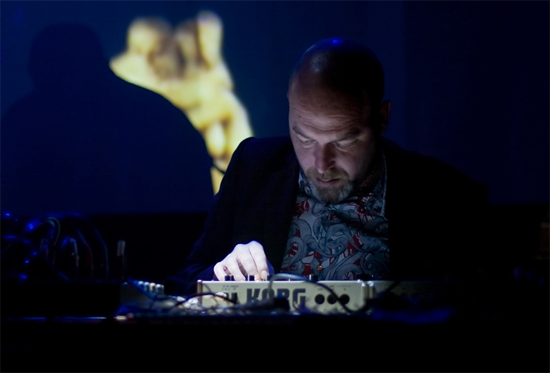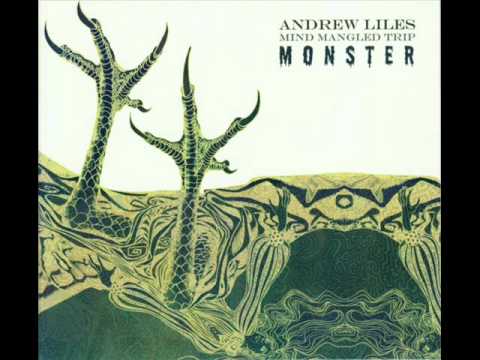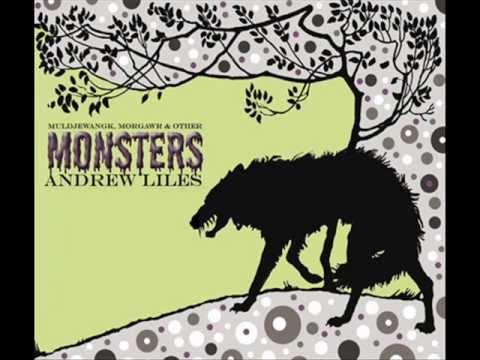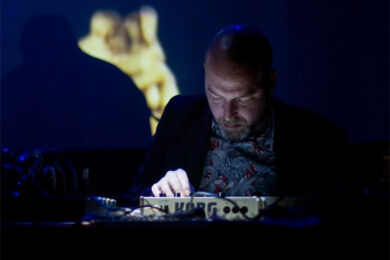Despite a career spanning over two decades and over 40 solo releases, Andrew Liles’ sound has remained elusive – a surreal journey through dreamstates, childhood memories, perverse juxtapositions and perverted narratives. The combination of Liles’ highly personal vision and a work ethic bordering on the monastic produces unique excursions at once both familiar and unfamiliar as they confuse samples of reality (from circus music to nursery rhymes read by the Marquess of Bath) with queasy electronics and prepared instruments. Although this renders his releases defiantly unclassifiable, the work is united through an extraordinarily vivid reproduction that illuminates the elegance in the most unmusical of sounds. This is perhaps why Andrew has been a regular fixture in both Nurse With Wound and Current 93’s output for several years now.
And yet some of his recent work has started to reveal his long held passion for the guitar and the more conventional charms of heavy rock. This is due to become more overt with the imminent release of Schmetaling Monster of Rock. A continuation in his ‘Monster’ series of recordings that also includes the acid-frazzled Mind Mangled Trip Monster and Muldjewangk, Morgawr & Other Monsters, it’s a metal-based concept album that returns Liles to his musical first love.
Here, he speaks candidly about the album and its wider context, revealing some unexpected influences and explaining why he blames Bon Jovi for usurping the genre, along with discussing his new project, Art Error Ist, with Faust’s Jean Hervé Peron and Nurse With Wound’s Steven Stapleton.
You played as part of Art Error Ist at the weekend – how did it go? Are there plans to play further concerts or release anything together?
AL: It was great. I really enjoyed it. Total chaos and mayhem, chainsaws and madness. I blew up an amp and we are banned from playing the venue for an assortment of health and safety issues and excessive volume. So I consider it that a success… of sorts. We intend to play a few shows next year. We would like to make it an on-going concern as we all enjoy the freedom it allows, i.e. not being Nurse With Wound or Faust… Something quite different. We are all very different people and personalities within the group but also kindred spirits.
There is an idea for an album that we discussed at the weekend, whether it happens or not is another issue but I hope it does.
You were on electric guitar for much of the show. Guitar has also started to feature more in your solo work, particularly on last year’s Mind Mangled Trip Monster. What’s provoked this return to a more traditional sound source?
AL: I have always used guitar on almost all my recordings, though you would find it hard to determine that it was a guitar. I have played the guitar since I was 12 but never in a traditional way. I always detuned and played it the way I thought it should be played. I wasn’t deliberately detuning and being ‘avant garde’ as I knew nothing of that world; I just wanted to sound like Eddie Van Halen without having any lessons or trying to work out difficult chord shapes.
When I was a little older and was messing around with teenage bands they didn’t really like my tuning. Although I could play most things they soon determined that I couldn’t play ‘properly’. So I thought fuck you and I went solo from the outset, no one wanted me anyway. In recent years I have taught myself how to play ‘properly’ and have found an intense enjoyment from playing. Mind Mangled… wasn’t a concerted effort to make a more traditional sounding record, it was just because I was playing the guitar a lot at the time, so that in turn lent itself to the making of that record.
It focuses on full-bodied acid folk songs, albeit sculpted with your customary surreal approach – even allowing a wood pigeon to join in at one point. What inspired you to explore this style of music?
AL: I had wanted to make a psych album for quite sometime. My idea of psych has always been different to what really is considered psych. Back to the guitar, I wanted to use that and I wanted to create an album where regular listeners went ‘Well I didn’t expect that!’ I have very diverse tastes in music and figure that my audience do as well, so I hope they can enjoy my flights of fancy, whims and musical departures.
The next instalment in your current ‘Monster’- themed collection, Schmetaling Monster of Rock, is set to be released later this year. Is the album going to be true to its title and feature heavy rock songs?
AL: Oh yeah, for sure it’s a metal/rock album of sorts! I don’t know what people are going to make of it. I have been working on it for years and years, at least four. But I think it is suitably ‘out there’ for people who like my music. It’s pretty far removed from a traditional sounding metal album. Part tongue-in-cheek, part serious, part homage to my love of rock and metal. I have Matthew Waldron on there, Maniac and Attila Csihar. Ian Paice was on there as well, albeit in a sampled form, but has since been replaced for fear of legal action. Michael Schencker’s management wanted £4,000 for a guitar solo, which of course was way out of my budget, but if I had the money I would have paid that. That was a shame for me as MSG was the first band I ever saw and it changed my life. Funnily enough both Michael Schenker and Ian Plaice appear on the new William Shatner album. I guess he had the four grand and more to pay them!
I also approached a lot of very well known rock stars to be on this one, and not one of the fuckers or their management replied. I was warned though from a friend who is pretty connected in that world that mainstream ROCK stars would not ‘get it’ at all. By all accounts boys in ROCK only do ROCK, anything else is pretty much off limits. It’s a crying shame really, a strange twist of irony that I am an outsider in the world that made me an outsider in the first place. C’est la vie.
You’ve observed that “Bon Jovi systematically destroyed the values of heavy rock”. What is it about the music that has kept you listening all this time and how do you think Bon Jovi managed such a feat?
AL: I have been into rock and metal since I was a kid, from the age of 12. It inspired me to want to become a musician; flash bombs and super loud rock & roll and dry ice were the catalyst for me. If it wasn’t for Judas Priest or Black Sabbath there would be no Andrew Liles music, and maybe some people would think the world a better place without us!
Bon Jovi, to me, is homogenised rock/metal. They made it saccharine. The rock world all of a sudden had a pretty poster boy, a commodity that appealed to a wider audience. Rock for me is ugly, beer drinking, hell raising, adolescent acne faced misfits, not perms and pursed lips.
Rock to me has a cultural, class and social importance that has largely been ignored. Rock and metal is widely regarded as a bit of a joke, a cliché and with mocking irony, but to me it is (or was) very much a working class genre that fulfilled a role between being a kid and being a man. I would one day like to write an anthropological and cultural thesis about the subject, but maybe I shouldn’t, as that would negate the whole principle of ROCK.
So what was it that diverted you away from rock onto the left-hand path of more wayward electronic and post-Industrial sounds?
AL: The Sisters of Mercy. They were a ‘rock’ band when I first heard them; the term ‘Goth’ hadn’t really been invented then. So I used to listen to John Peel on the off chance that there might be a session by them. Whilst listening I heard ‘Sick Man’ by Scraping Foetus Off the Wheel, which blew my mind, and from there I found out all the bands that Jim Thirlwell was involved with…Coil, Nurse With Wound, etc, which in turn opened other musical doors for me.
Your work with Current 93 and Nurse With Wound has steadily increased over the past few years seeing both bands performing more than ever, but your solo shows seem to have ceased. Do you prefer playing in a band?
AL: I do much prefer to play live with bands. That is for a number of reasons really. The onus is not on me, I don’t like being the centre of attention, I’m not a front man. I also like the camaraderie of being in a band, hanging out and having fun. Doing solo shows is a pretty lonely occupation and to coax me to come and play solo is usually an expensive proposition, maybe too expensive.
After Schmetaling Monster… you have two CDs named Sideways Through Time in the works featuring just piano, gongs and cymbals. Is there a concept behind this release and what made you restrict yourself to just three acoustic instruments?
AL: Yes there is a concept behind the record. It is pretty complex to explain. I think the best analogy is thus: if you imagine your life as a pack of cards numbered 1 to 80, then you shuffled them. So one moment you could be two years old then the next day you could be 54 then 72 then 13 then one so on and so forth. So effectively you could be cutting sideways through time, the linear plodding journey that of course we all know on a daily and hourly basis is shattered. It’s just a tripped out idea, one day you’re on your deathbed, the next six years old on holiday.
Basically it is a recording about time, memory and mortality… Lost opportunity, sadness and forgetting. It’s not a fun packed ride at all. It is another of my personal audio representations… Essentially designed by me, for me, and if other people enjoy what I create that is pretty special.
I have restricted the instrumentation so that I can be more creative with less equipment. It is quite liberating to record this way; if you give yourself too much scope you can make a clouded and muddy record. When I first started recording in 1984 I had very little equipment, and when I listen to some of the stuff I recorded in the 80’s I think about the hours of effort I put into my recordings and how innovative I had to be. The clichés ring true… Less is more.
You’ve been remastering some of your earlier releases. What’s it been like re-listening to music you created years before?
AL: Generally I never ever listen to a record I have made ever again. I listened so much whilst creating the piece that I have exhausted all recreational possibilities. The creative process is over so it holds little interest for me.
If do listen to something again for remastering or re-release I just listen to it in a purely technical way, not for any kind of enjoyment. When I do go through recordings I am often surprised and marvelled how I made some of them, I have totally forgotten some of the processes and try to unravel them again. But like I say it is purely a technical thing. I consider listening to your own records for entertainment a bit like wanking off whilst looking at yourself in front of the mirror; it’s more than a little narcissistic. I’d much prefer to be carving myself a new hole to fill.





